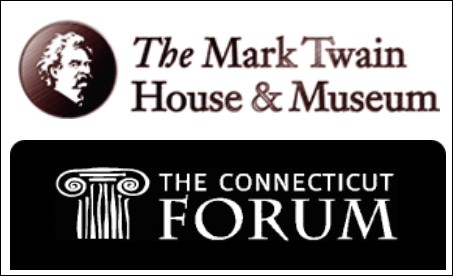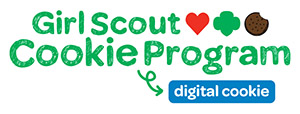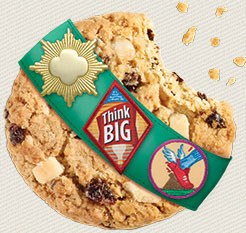Conversation in the Digital Age: Panel of Experts Will Discuss How We’re Changing
/The topic of the evening is an exploration of conversation in the digital age, as two Hartford institutions come together to bring some perspective to how we communicate in the age of technology, and how we don’t.
On Wednesday, May 4, The Connecticut Forum in partnership with the Mark Twain House & Museum will present DISCONNECT: Conversation in the Digital Age. The event is described as an (old-fashioned) conversation with three nationally-recognized digital experts to discuss “how social media and our ubiquitous devices have impacted the art of authentic conversation.” They pose the question: if conversation is how we truly connect to others, what happens when face-to-face communication decreases?
The panel will feature Dr. David Greenfield from the Center for Internet & Technology Addiction, Slow Tech Movement founder Janell Burley Hofmann, and tech ethicist David Ryan Polgar. Jamie Daniel, director of programming at The Connecticut Forum, will moderate the conversation.
Polgar says that opportunities for fluid conversations have diminished, to our detriment. “We have adapted technology faster than we can adjust our norms or our etiquette. Do we ever have a prolonged conversation anymore? There’s a difference between communication and conversation,” he suggests.
“We’re constantly packaging ourselves – exercising brand management in our conversations,” he observes. “We’re so plugged in, we don’t do eye-to-eye communicating much anymore – there’s a need to increase facetime in our communication.”
Polgar is a frequent speaker and respected tech commentator/writer, and has been featured in The Boston Globe, Financial Times, BBC, SiriusXM, Sydney Morning Herald, VentureBeat, US News & World Report, TEDx, and Forbes, among other publications. He is also co-founder of the Digital Citizenship Summit, a global network of summits focused on safe, savvy, and ethical use of social media and technology. With a background as an attorney and educator, he examines tech use from an ethical, legal, and emotional perspective, providing a unique look into emerging trends and business insight.
“We’re thrilled to collaborate with the Twain House on this timely event,” said Connecticut Forum Executive Director Doris Sugarman. “We welcome opportunities like this to facilitate and encourage dialogue about compelling topics that impact our communities and our lives.”
Individuals planning on attending can send in a question in advance of May 4, via a link that provides a form for questions to be directed at a specific panelist, or the entire panel.
Janell Burley Hofman is the author of the book, iRules: What Every Tech-Healthy Family Needs to Know About Selfies, Sexting, Gaming and Growing Up. She is also a speaker and consultant on topics like technology, media, health, relationships and personal growth. She will be signing copies of her book after the program.
Dr. David Greenfield is the founder of The Center for Internet and Technology Addiction and an Assistant Clinical Professor of Psychiatry at the University of Connecticut School of Medicine. He is recognized as one of the world’s leading voices on Internet, computer, and digital media behavior, and a pioneer concerning compulsive and addictive use. He is the author of the Virtual Addiction, which rang an early warning bell with tech overuse when it came out in 1999. He lectures to public and medical/psychiatric groups throughout the world, and has appeared numerous times on national media and publications.
“I am looking forward to hearing from this panel of experts on questions that we consider every day,” said Jamie Daniel, Director of Programming at The Connecticut Forum, who will be moderating the discussion. “How is technology changing the way we make friends, fall in love, and parent our kids? How is our online discourse impacting the way we engage in politics? Connect with one another? Shape our communities? And how is social media changing our relationships - and our brains? This amazing panel will help us consider all of this, and more.”
-----
The Connecticut Forum is a (c)(3) nonprofit organization serving Connecticut and beyond with live, unscripted conversations among renowned experts and celebrities, and community outreach programs including the Connecticut YOUTH Forum. The Mark Twain House & Museum has restored the author's home, where the author and his family lived from 1874 to 1891. In addition to providing tours of the National Historic Landmark, the institution offers activities and educational programs that illuminate Twain's literary legacy and provide information about his life and times.
Tickets for DISCONNECT are $10. ($5 for Mark Twain House & Museum members and Connecticut Forum subscribers) The program on Wednesday, May 4 begins at 7 PM. Photo: (l to r) David Greenfield, Jannell Hofmann, David Ryan Polgar.



 “We were excited here in Connecticut to give our Girl Scouts the opportunity to participate in a pilot of Digital Cookie, a first-of-its-kind web platform that lets girls sell cookies from their own protected, personalized websites,” said Tiffany Ventura Thiele, Communications & PR Manager for Girl Scouts of Connecticut.
“We were excited here in Connecticut to give our Girl Scouts the opportunity to participate in a pilot of Digital Cookie, a first-of-its-kind web platform that lets girls sell cookies from their own protected, personalized websites,” said Tiffany Ventura Thiele, Communications & PR Manager for Girl Scouts of Connecticut.
 Officials stress that “because 100 percent of the net revenue raised through the Girl Scout Cookie Program stays with local councils, when you purchase Girl Scout Cookies you’re not only getting a delicious treat — you’re also making an important investment in your community.”
Officials stress that “because 100 percent of the net revenue raised through the Girl Scout Cookie Program stays with local councils, when you purchase Girl Scout Cookies you’re not only getting a delicious treat — you’re also making an important investment in your community.”





























